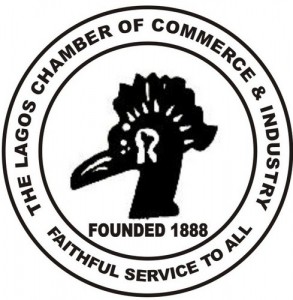BUSINESS
Multiple taxation, infrastructure deficit, killing Nigeria’s economy: LCCI

The Director of Research and Advocacy of the Lagos Chamber of Commerce and Industry (LCCI), Dr Vincent Nwani, restated on Wednesday that multiple taxation and infrastructure deficit were harming the nation’s economy.
Nwani, an economist, made the observation in a paper entitled: “Regulations Undoing Diversification of the Economy” at the Breakfast Policy Dialogue, organised by the Initiative for Public Policy Analysis (IPPA) in Lagos.
IPPA is a public policy think-tank.
Our correspondent reports that the theme of the event is: “Moving from Regulations to Policy Action–the Challenges’’.
“So many policies in Nigeria are hindering the nation’s drive for diversification.
“In all indicators, ease of getting credit, electricity, registering a business, resolving disputes, exporting and importing among others are challenges and we are not doing well at all.
“A lot of people are not doing business in Nigeria because of security and so many businesses have closed down because of insecurity.
In terms of stability of laws and inconsistency of law, we are also ranked very low: 181 out of 191 countries.
“On infrastructure, whether it is power, road or rail, we are also one of the worst in the world. Our index is 177 out of 190 countries.
“And on economic competitiveness, we are 124 out of 140 from the World Economy Forum.’’
According to Nwani “from everything we look at, we are not doing well even though we are the largest country by population in Africa.
“I can tell you, regulation is the problem. Multiplicity of regulations, taxes and reforms are issues.
“There are some sectors we count up to about 80 different types of taxes, especially in oil and gas and manufacturing and this is why a lot of businesses are moving from formal to businesses that are invisible.’’
Speaking on the nation’s ports, the economist said that multiplicity of agencies, cargo clearance bottlenecks and other delays were causing serious problems at the ports.
According to him, due to these factors, some of cargoes that should land in Nigerian ports often head to other countries.
Also speaking, a member of the House of Representatives, Hon. Olubunmi Odebunmi, said that the economy was picking up and that the Federal Government was working hard to prevent job losses.
Odebunmi, the Chairman of the House Committee on Information, who was represented by his aide, Mr Al-Marruf Ajibolu, said that government was also tackling the problems of poor infrastructure and epileptic power supply.
The Executive Director of IPPA, Mr Thompson Ayodele, told NAN that the body was promoting advocacy to ensure that businesses were not killed through legislation.
“What can be done is to see other ways by which businesses can be regulated and make them more responsible to the society.
“If we close businesses with legislations, we tend to see smugglers filling up the vacuum and even the regulators will not have control over it again.
“So, instead of sniffing life out of existing manufacturers, why can’t we explore ways in which we can make them more responsible?’’




 Davido's Net Worth & Lifestyle
Davido's Net Worth & Lifestyle 
